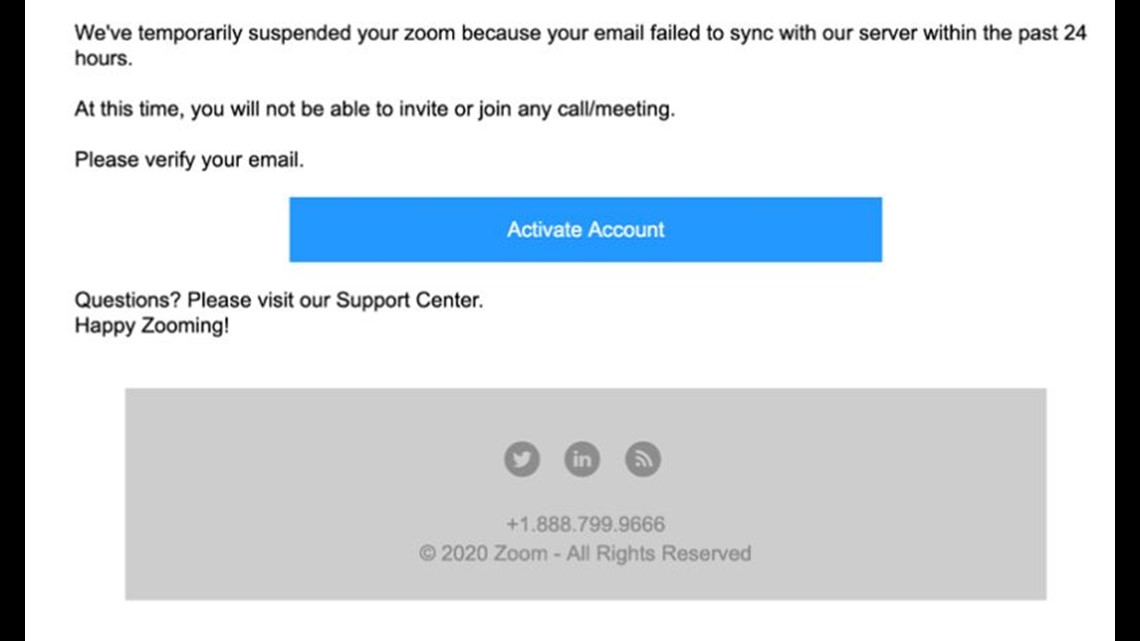WASHINGTON — QUESTION:
How can you tell if an Zoom email is from a scammer?
ANSWER:
One way is to hover on links to see their destination and take extra steps to determine where it's coming from.
SOURCES:
- Better Business Bureau
- Zoom
PROCESS:
Kelsey Coleman is the Director of Communications for the Better Business Bureau serving Washington, D.C.
She said, "Scammers are opportunists. They, they take advantage of the situation. They know that everybody right now is online."
"What we're hearing about is an email that you receive, it looks like it's a Zoom invite. It's similar to other phishing emails, where it looks like it's coming from a legitimate source, but this is saying that you've been invited, and it's asking you to click on the link, and that link may download malware, or it may ask for personal information," she said.


According to the BBB, scammers registered more than 2,449 Zoom-related domains from late April to early May this year alone. Con artists use these domain names, which include the word “Zoom,” to send you an email that looks like it’s coming from the official video conferencing service.
The BBB says the link may take you to a page that looks official but it's not and warns entering your username and password gives scammers access to your credentials.
She added, "We want consumers to really just be on the lookout for these to only communicate with people on zoom that you know and trust. And if it's an unexpected unsolicited invite, take a step back and try to contact the person in a different way to find out if it is legitimate.
Zoom sent our researchers this statement saying in part, "Zoom takes security very seriously. Since phishing emails often try to appear to be from known companies, we encourage users of all platforms to be extra cautious around emails from outside parties. Commons signs of phishing emails include errors within the text, an incorrect sender's email address, or malicious links or attachments.
Zoom says you can report all phishing emails to the U.S. Anti-Phishing Working Group at phishing-report@us-cert.gov

